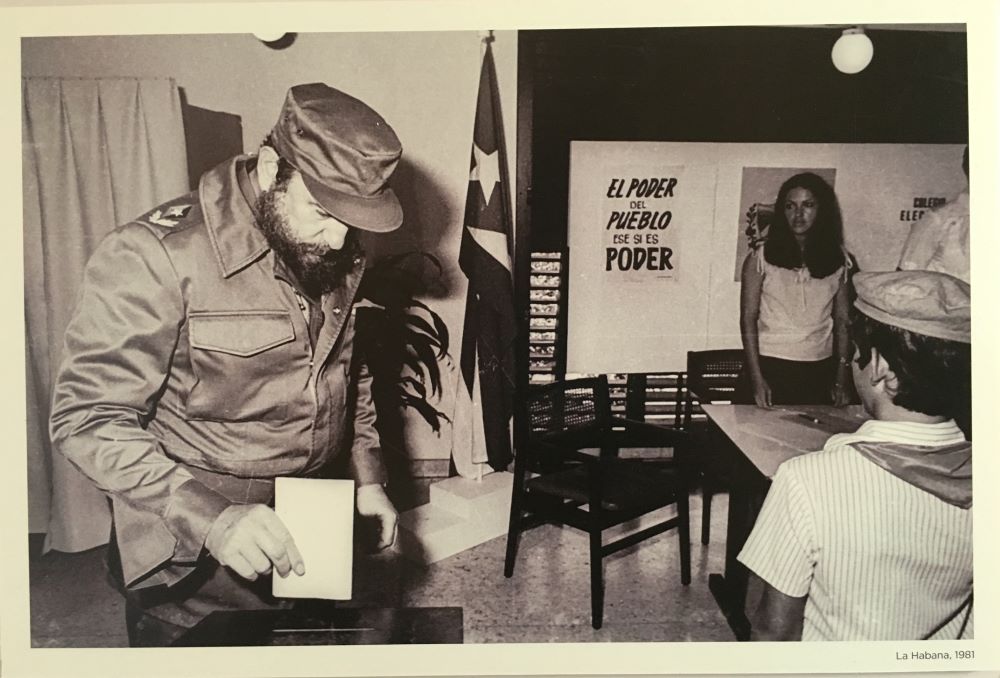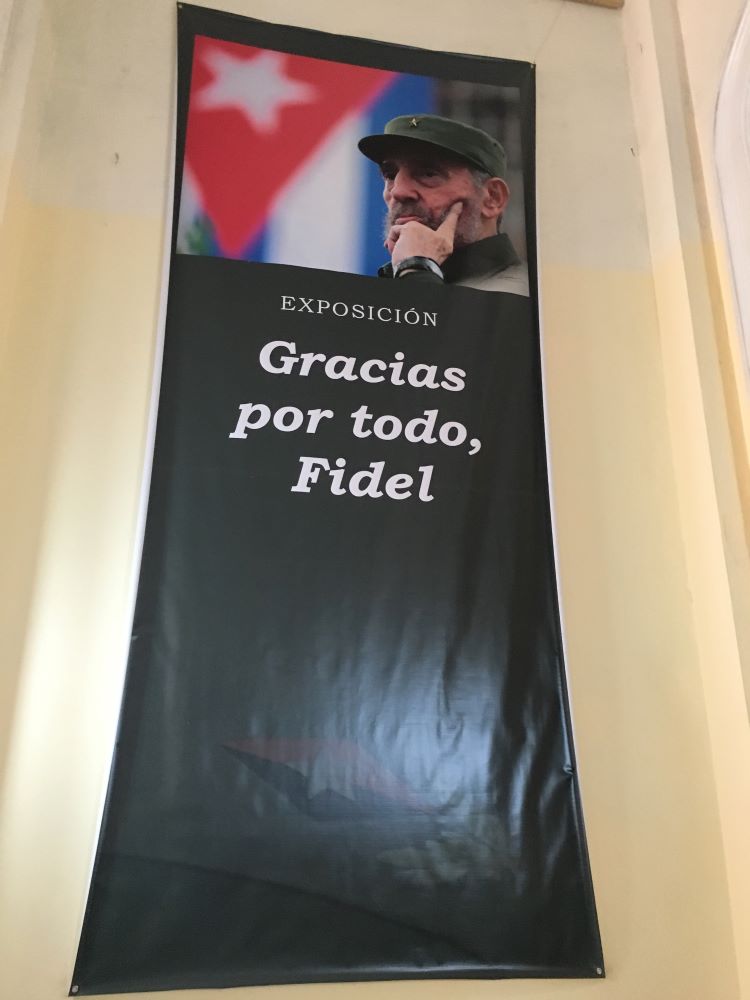In the lead-up to what many watchful Cubans predicted would be the announcement of the death of 90-year-old Fidel Castro, the title of a summer 2016 exhibit at the Museum of the Revolution (in Cuba’s former Presidential Palace) succinctly reminded citizens of the limits of their power: “Thanks for everything, Fidel.” Photographs in the display echoed the same idea: citizens were supposed to be grateful for the transformation of Cuba from a country that aspired to a more representative, anti-corruption, liberal democratic state into a Communist Party “proletarian dictatorship.” Appearing to mock even the idea of a free, contested election in Cuba, one photograph showed Fidel Castro apparently voting for himself. In the background, a young woman looks on ironically while a sign beside her reads, “The power of the people, now that’s real power.” Another photograph captures Fidel Castro in 1970, delivering a speech commemorating the one-hundredth anniversary of the birth of Soviet leader Lenin. Absent from the image, however, is a visual portrait of Lenin, leaving the observer to conclude that Fidel had come to embody him. Havana, 2016.


